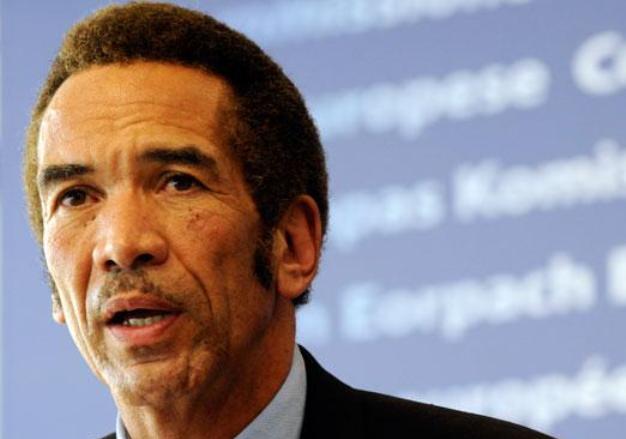After more than a month of strikes by public sector workers, President Ian Khama spoke openly and frankly with Beata Kasale.

Beata Kasale: Has there been an assessment of how much the strike has cost the country so far?
President Ian Khama: We are monitoring the situation, but it is too early to draw conclusions. Obviously the longer the strike lasts the greater will be its negative impact, potentially compromising our efforts to restore a balanced budget, which will be necessary if we are to achieve our goals for sustainable economic growth.
How much of the strike do you think is politically motivated?
What I have already said is that when political agendas get mixed with labour issues it is usually to the detriment of ordinary worker interests. Of course our opportunistic opposition have tried hard to incite and cause as much disruption as possible in the strike, so as to gain what they failed to do at elections.
Some are calling for you to step down, especially the opposition. What is your response to this?
They should be the ones to step down for encouraging lawlessness and generally irresponsible behaviour not expected of a sensible adult. What I have yet to hear from our political opponents is any serious proposals as [to] how they would increase salaries while restoring a balanced budget, without cutting into programmes, the provision of health care, education and other services.
The longer the strike goes on, the more damage to the economy. Is there no ground for compromise for the greater good of the nation?
It is precisely for the greater good of the nation that we cannot now afford to buy short-term popularity by burdening the country with unsustainable deficits into the future.
People have criticised your methods of gauging public opinion by addressing kgotla [traditional assembly] meetings and ignoring the unions. What do you say about that?
The purpose of going to kgotla is to engage communities over their specific concerns, while informing them of government policies and programmes. Of course in any kgotla all sorts of issues may be raised, including those of wider public interest. In this context, if I am in a kgotla or any other public event being covered by the press, be it The Voice or BTV, I am addressing the nation as well as those in attendance.
The country seems to be descending further into anarchy, how will this all end?
I disagree. While I am deeply concerned about the unrest that has occurred in our schools, I remain confident that our society will continue to uphold the values of botho [togetherness], including mutual respect and respect for the rule of law that have been the cornerstones of progress.
The hospital closures and slow-downs are a matter of life and death and have, in fact, resulted in deaths. Your comment, Mr President?
The situation [facing] our health facilities has been of the greatest concern. As you know the industrial court has declared the strike by health and other essential workers illegal, in line with international medical ethics. It is most unfortunate that despite this, and repeated warnings, some health workers have defied the law, their own professional ethics and common decency by persisting with the strike. As a result, [the] government has had to take remedial action to ensure that health facilities remain open.
This interview was first published in full in The Voice, Gaborone, on 27 May 2011.





